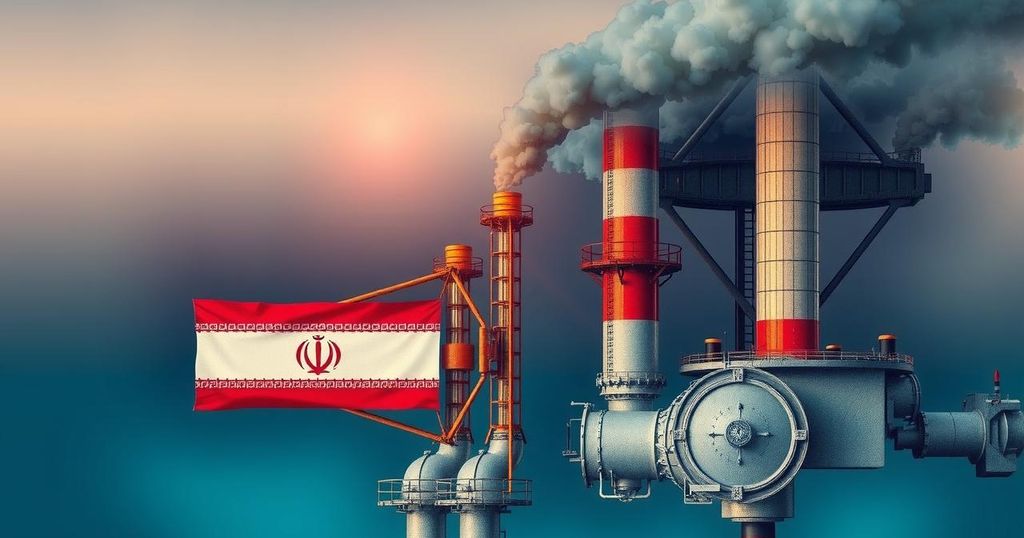Iran, despite holding vast natural gas and oil reserves, faces severe energy shortages and blackouts during winter, exacerbated by mismanagement, sanctions, and climate challenges. Citizens endure unheated homes and lost productivity, while the reliance on low-quality fuels for power generation worsens air quality. The crisis raises urgent questions about the need for systemic reforms and sustainable energy investments.
Iran, renowned for its expansive natural gas and crude oil reserves, is currently facing a severe energy crisis combined with the challenges of a harsh winter, causing widespread suffering due to power outages and fuel shortages. This paradox arises despite the country’s wealth of resources, as issues of mismanagement, international sanctions, and climate change converge to exacerbate the situation.
Although Iran possesses the second-largest proven natural gas reserves and ranks fourth globally in crude oil reserves, the reality for its citizens includes persistent blackouts and significant energy shortages. Officials blame high consumption and inadequate fuel supplies; however, chronic underinvestment and the implications of Western sanctions have severely hindered the nation’s infrastructure capabilities during peak seasonal demands. President Masoud Pezeshkian’s recent comments on the crisis during power outages highlight the urgency of the situation, particularly as it affects Tehran and other provinces.
During this particularly frigid winter, Iranians are enduring unheated homes amid economic hardships, forcing many to resort to layering clothing and seeking warmth under blankets. Businesses, too, are suffering from unpredictable power interruptions lasting several hours. The impact is evident on major roads, which are darkened at night, increasing risks associated with travel and safety.
The ongoing energy crisis results not only from governance issues but is also significantly influenced by the dual pressures of climate change and sanctions. Seasonal demands for energy peak during severe winter months, and the infrastructure is ill-equipped to respond efficiently. Additionally, sanctions hamper Iran’s capacity to update its power grid and implement cleaner fuel alternatives, exacerbating the crisis.
The environmental implications are troubling, as the reliance on lower-quality fuels such as mazut for power generation has led to increased pollution in cities like Tehran. Health experts have expressed concerns regarding the rising incidence of pollution-related illnesses, which claim thousands of lives each year.
The present energy crisis not only raises critical questions regarding Iran’s energy future but also highlights the necessity for systemic reforms and significant investment in sustainable energy solutions. The experiences of Iran can serve as critical lessons for other Middle Eastern nations, which can develop resilient energy infrastructures that withstand both climatic and geopolitical pressures.
Iran is a Middle Eastern nation blessed with substantial energy resources, specifically natural gas and crude oil. Despite its wealth, the country struggles with a crippling energy crisis that has intensified during colder seasons. This situation is not a mere coincidence; it stems from a combination of systemic issues, including administrative mismanagement, the impact of international sanctions, and the increasing pressures imposed by climate change, all contributing to a scenario wherein energy demands far exceed supply provisions, leading to widespread outages.
In conclusion, Iran’s energy crisis highlights a severe misalignment between its abundant resources and the state of its energy infrastructure amidst compounding factors of climate change and longstanding sanctions. The glaring inadequacies in management and investment necessitate urgent reforms and innovations in sustainable energy practices. Other Middle Eastern nations can glean valuable insights from Iran’s predicament, incentivizing future-proofing strategies against similar crises.
Original Source: scoopempire.com







